Evaluating general managers in Major League Baseball is an incredibly tough exercise. There's the draft, free agency, coaching staff and trades, and every general manager deals with different constraints from prior regimes and from ownership. Because of those difficulties, we'll try a different kind of exercise aimed at evaluating and grading general managers solely on the results of the best and worst trades they've ever made.
We'll do our best to keep those moves with the team they currently run. Where the person in charge of baseball decisions isn't the general manager, the general manager will be in parentheses, with the grade going to the team's acting head of baseball operations. And beyond those grades, we've grouped them in four tiers that typify how well they've done -- and what their teams' fans can expect.
Jump by tier:
Tier 1: Elite wheeler-dealers | Tier 2: Taking big swings, risking big misses
Tier 3: Problem-solving pros | Tier 4: Show us more
Jump to a team:
BAL | BOS | CHW | CLE | DET
HOU | KC| LAA | MIN | NYY
OAK | SEA | TB| TEX | TOR
The elite wheeler-dealers
Kansas City Royals: Dayton Moore
Grade: A
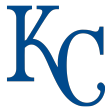 Best: Traded Zack Greinke and Yuniesky Betancourt to the Brewers for Lorenzo Cain, Jake Odorizzi, Alcides Escobar and Jeremy Jeffress
Best: Traded Zack Greinke and Yuniesky Betancourt to the Brewers for Lorenzo Cain, Jake Odorizzi, Alcides Escobar and Jeremy Jeffress
Worst: Traded Melky Cabrera to the Giants for Jonathan Sanchez
When the Royals traded Greinke after the 2010 season, they probably had hope for the four prospects they received, but in Cain, the team got the best player on its back-to-back American League championship run, while Cain and Escobar combined for 15.6 WAR, nearly 40% of the Royals' position-player total during that time. Odorizzi was a part of the deal that brought James Shields and Wade Davis to Kansas City, two other key cogs in its championship run. On the other side, Cabrera put up a very good 2012 for the Giants while Sanchez was moved halfway through the season after a dismal start, though it is fair to note that Cabrera was suspended for performance-enhancing drugs during the season.
New York Yankees: Brian Cashman
Grade: A
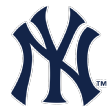 Best: Traded Alfonso Soriano and Joaquin Arias to the Rangers for Alex Rodriguez
Best: Traded Alfonso Soriano and Joaquin Arias to the Rangers for Alex Rodriguez
Worst: Traded Mike Lowell to the Marlins for Ed Yarnall, Mark Johnson and Todd Noel
Cashman has been around a long time, and while his recent acquisition of Gleyber Torres looks really good, getting Rodriguez plus about a third of the money owed to him was a massive steal. A-Rod put up 29.1 WAR from 2004 through 2007 before he opted out of his contract, almost double Soriano's production over the same time period. Cashman has sent few young players away who had a ton of success, with Ted Lilly and Mark Melancon among the most notable, but with veteran Scott Brosius at third, the Yankees traded Lowell away for three pitchers who didn't contribute to New York's success.
Seattle Mariners: Jerry Dipoto
Grade: A
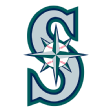 Best: Traded Robinson Cano and Edwin Diaz to the Mets for Jarred Kelenic, Justin Dunn, Gerson Bautista, Anthony Swarzak and Jay Bruce
Best: Traded Robinson Cano and Edwin Diaz to the Mets for Jarred Kelenic, Justin Dunn, Gerson Bautista, Anthony Swarzak and Jay Bruce
Worst: Traded Nick Neidert, Robert Dugger and Christopher Torres to the Marlins for Dee Gordon and international cap space
There are a lot of trades to analyze when it comes to Dipoto, but trading for one of the best prospects in baseball in Kelenic while simultaneously getting rid of the downside of the Cano contract was a big win for Dipoto and the Mariners. Less promising was taking on around $40 million in Gordon's salary while watching him play replacement-level baseball. Worse, the international bonus space was targeted for the pursuit of Shohei Ohtani, who opted for the Angels. None of the three players traded for Gordon has done much, but they still have the potential to contribute in the majors.
Tampa Bay Rays: Erik Neander
Grade: B
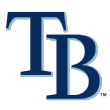 Best: Traded Chris Archer to the Pirates for Austin Meadows, Tyler Glasnow and Shane Baz
Best: Traded Chris Archer to the Pirates for Austin Meadows, Tyler Glasnow and Shane Baz
Worst: Traded Jake Odorizzi to the Twins for Jermaine Palacios
I almost overthought this one and went with the Tommy Pham trade given how little Tampa Bay parted with, but Meadows and Glasnow alone put up more than 6 wins above replacement last season and Baz is a solid prospect. The Rays don't make the playoffs last season without those performances, and could get many more years of solid play from everyone received in the deal. Less happily, the Rays' low payroll has meant trading away players such as Odorizzi, and they didn't receive much in return with Palacios while Odorizzi has made 62 starts and put up 6.9 WAR over the past two seasons with the Twins, ranking 13th in the American League during that time.
Tier 2: Taking big swings, risking big misses
Chicago White Sox: Rick Hahn
Grade: B
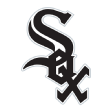 Best: Traded Chris Sale to the Red Sox for Yoan Moncada, Michael Kopech, Victor Diaz and Luis Alexander Basabe
Best: Traded Chris Sale to the Red Sox for Yoan Moncada, Michael Kopech, Victor Diaz and Luis Alexander Basabe
Worst: Traded Fernando Tatis Jr. and Erik Johnson to the Padres for James Shields
When the White Sox decided to rebuild, they went big in moving Sale. Moncada has developed into a star while Kopech still has tons of potential. Hahn's rebuild might be going even better had the Sox not made a deal for Shields, who made 76 starts for Chicago at a below-replacement level. Tatis has developed considerably since the White Sox let him go, and he's now one of the best young players in the game.
Texas Rangers: Jon Daniels
Grade: B
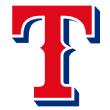 Best: Traded Mark Teixeira and Ron Mahay to the Braves for Elvis Andrus, Neftali Feliz, Matt Harrison, Jarrod Saltalamacchia and Beau Jones
Best: Traded Mark Teixeira and Ron Mahay to the Braves for Elvis Andrus, Neftali Feliz, Matt Harrison, Jarrod Saltalamacchia and Beau Jones
Worst: Traded Adrian Gonzalez and Chris Young to the Padres for Adam Eaton and Akinori Otsuka
Both Andrus and Harrison put up four-win seasons in the Rangers' pennant-winning 2011 campaign, with both players contributing in other seasons as well. Feliz was one of the better relievers in the game from 2009 through 2011, and if Saltalamacchia had lived up to his promise, the deal would have been even more lopsided. Daniels does have some other good deals on his ledger, such as trading for Josh Hamilton, Cliff Lee and Cole Hamels, but he's also got some bad ones, including trading away Gonzalez as well as Kyle Hendricks, Chris Davis and John Danks.
Oakland Athletics: Billy Beane (David Forst)
Grade: C
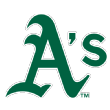 Best: Traded Jeff Samardzija to the White Sox for Marcus Semien, Josh Phegley, Chris Bassitt and Rangel Ravelo
Best: Traded Jeff Samardzija to the White Sox for Marcus Semien, Josh Phegley, Chris Bassitt and Rangel Ravelo
Worst: Traded Josh Donaldson to the Blue Jays for Kendall Graveman, Brett Lawrie, Sean Nolin and Franklin Barreto
Beane's best trade might actually be the one that brought Johnny Damon, Cory Lidle and Mark Ellis to Oakland, but Damon was around just a year and no player in that trade is as good as Semien is right now, with Bassitt stepping in as a solid starting pitcher last year as well. Constantly trading away players at their potential high points does have its risks and drawbacks, though, and the Donaldson trade is the prime example. Beane has a number of good trades on his ledger, but going by just his best and worst hurts him in this exercise.
Tier 3: Problem-solving pros
Cleveland Indians: Chris Antonetti (Mike Chernoff)
Grade: B
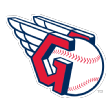 Best: Traded J.P. Feyereisen, Clint Frazier, Ben Heller and Justus Sheffield to the Yankees for Andrew Miller
Best: Traded J.P. Feyereisen, Clint Frazier, Ben Heller and Justus Sheffield to the Yankees for Andrew Miller
Worst: Traded Corey Kluber to the Rangers for Delino DeShields Jr. and Emmanuel Clase
Miller struck out 46 batters against just two walks for Cleveland in the 2016 regular season, then struck out another 30 batters in 19 postseason innings and nearly helped Cleveland to a World Series title. He pitched brilliantly again in 2017, while Frazier hasn't established himself after several years in the majors and Sheffield made his debut only last season. On the opposite end, in exchange for its other 2016 hero and two-time Cy Young Award winner, Cleveland took a reliever and a bench outfielder to save money.
Los Angeles Angels: Billy Eppler
Grade: B
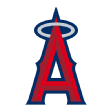 Best: Traded Sean Newcomb, Chris Ellis and Erick Aybar to the Braves for Andrelton Simmons
Best: Traded Sean Newcomb, Chris Ellis and Erick Aybar to the Braves for Andrelton Simmons
Worst: Traded Tony Sanchez to the Braves for Brandon Phillips
In Eppler's first offseason, he made a big move in landing the best defensive shortstop of his generation. Simmons has averaged 3.7 WAR per season and even put up average offensive numbers, all while averaging less than $10 million per season in payroll. Newcomb has developed into a quality pitcher, but Simmons has played at an All-Star level. On a pure player basis, Eppler's worst trade was the one that brought in closer Jim Johnson, who put up a below-replacement season, but international bonus space was also included in that deal -- helping the team sign Shohei Ohtani. Bringing in Phillips didn't come at a high player cost in 2017, but he played poorly as the Angels missed the playoffs.
Minnesota Twins: Derek Falvey (Thad Levine)
Grade: B
 Best: Traded Jermaine Palacios to the Rays for Jake Odorizzi
Best: Traded Jermaine Palacios to the Rays for Jake Odorizzi
Worst: Traded Jaylin Davis, Prelander Berroa and Kai-Wei Teng to the Giants for Sam Dyson
Odorizzi has helped anchor the Twins' rotation for two seasons and Minnesota gets him for one more year after the righty accepted a one-year qualifying offer instead of becoming a free agent. As noted in the Rays section, Odorizzi has been one of the better starters in baseball since coming over to Minnesota. As for the worst deal from the Twins' management duo, Dyson looked like a great fit in July, with another year of team control in 2020 as well. Unfortunately, injuries derailed the right-hander's season, and while the prospects given up weren't high-end, it's possible one of them comes back to haunt Minnesota.
Tier 4: Show us more
Baltimore Orioles: Mike Elias
Grade: C
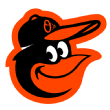 Best: Traded Dylan Bundy to the Angels for Kyle Bradish, Kyle Brnovich, Isaac Mattson and Zach Peek
Best: Traded Dylan Bundy to the Angels for Kyle Bradish, Kyle Brnovich, Isaac Mattson and Zach Peek
Worst: Traded Jonathan Villar to the Marlins for Easton Lucas
There's not a huge body of work, as Elias has been on the job just a year and a half. In the Bundy deal, the Orioles acquired quantity in the form of four minor league pitchers, diversifying risk for an organization needing multiple hits to take a step forward. Bundy wasn't going to be on the next Orioles contender, and his history is choppy enough that he might not have had value if they tried to deal him later. Villar had a very good 2019 season, but Baltimore simply decided to dump his salary for a non-prospect.
Boston Red Sox: Chaim Bloom (Brian O'Halloran)
Grade: C
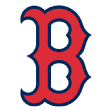 Best: Traded Mookie Betts and David Price (and half of Price's salary) to the Dodgers for Alex Verdugo, Jeter Downs and Connor Wong
Best: Traded Mookie Betts and David Price (and half of Price's salary) to the Dodgers for Alex Verdugo, Jeter Downs and Connor Wong
Worst: Traded Mookie Betts and David Price (and half of Price's salary) to the Dodgers for Alex Verdugo, Jeter Downs and Connor Wong
Bloom hasn't been on the job long, but he's got one really big move to show for it. On the one hand, Bloom received very good value for one year of Betts and for moving an onerous Price contract. He received one of the top 50 prospects in baseball in Downs, a promising outfielder in Verdugo and another prospect. On the flip side, Bloom traded away the face of the franchise and a former MVP in his prime in order to cut payroll during a season when the team should be contending. The value in the trade makes it his best deal; the reasoning for the trade makes it his worst.
Toronto Blue Jays: Mark Shapiro (Ross Atkins)
Grade: C
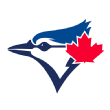 Best: Traded J.B. Woodman to the Cardinals for Aledmys Diaz
Best: Traded J.B. Woodman to the Cardinals for Aledmys Diaz
Worst: Traded Liam Hendriks to the A's for Jesse Chavez
There aren't any big winners here, but flipping a non-prospect in Woodman for a cheap, average player in Diaz for a season before moving Diaz for a young, average starter in Trent Thornton has worked out the best for the Jays. The worst move actually predated Atkins' arrival with the organization, but Shapiro was in charge by then. Chavez pitched poorly for a half-season in Toronto while Hendriks has been one of the 10 best relievers in the game over the past four seasons and was the best in baseball last year.
Detroit Tigers: Al Avila
Grade: D
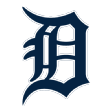 Best: Traded Justin Wilson and Alex Avila to the Cubs for Jeimer Candelario and Isaac Paredes
Best: Traded Justin Wilson and Alex Avila to the Cubs for Jeimer Candelario and Isaac Paredes
Worst: Traded Justin Verlander to the Astros for Daz Cameron, Franklin Perez and Jake Rogers
Avila's best trade involved moving his own son to another team. While Candelario has been merely OK in his time in the majors, Paredes is still 21 and a solid prospect in the minors. That's a pretty good return for a reliever and a backup catcher. Unfortunately, the return for trading future Hall of Famer Verlander into a pennant race hasn't worked out quite as well, with none of the three players the Tigers received looking like an average contributor in the majors.
Houston Astros: James Click
Grade: Incomplete
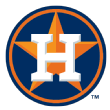 Click hasn't been on the job long enough after taking over in Houston due to the suspension and subsequent firing of Jeff Luhnow. His predecessor traded for both Justin Verlander and Gerrit Cole, which more than makes up for including Mike Foltynewicz in the Evan Gattis trade with Atlanta and Josh Hader in the trade for Carlos Gomez and Mike Fiers with Milwaukee.
Click hasn't been on the job long enough after taking over in Houston due to the suspension and subsequent firing of Jeff Luhnow. His predecessor traded for both Justin Verlander and Gerrit Cole, which more than makes up for including Mike Foltynewicz in the Evan Gattis trade with Atlanta and Josh Hader in the trade for Carlos Gomez and Mike Fiers with Milwaukee.
